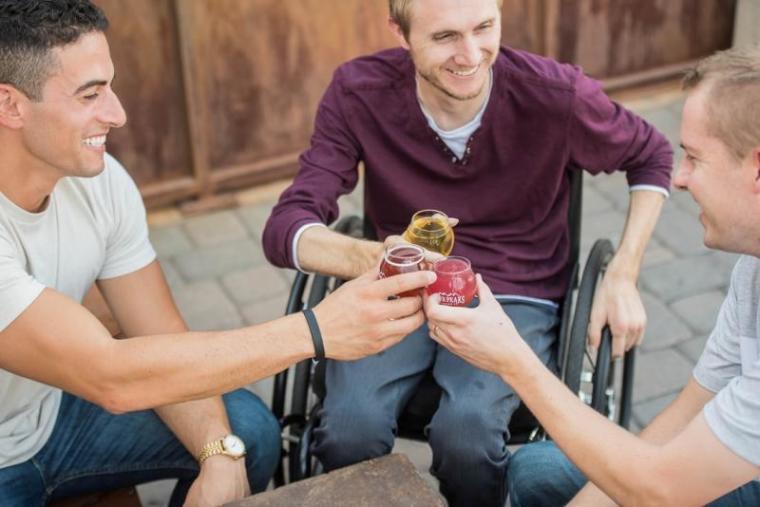
Friendships are hard and complicated things that are an essential part of life. I have trouble defining what a friendship is. Although, friendships can be filled with fun, laughter, love and life-giving conversations.
The trouble is ‘the what’ and ‘the who’ in friendship. We probably don’t often or don’t take time at all to consider these questions. The who is the people or the person we see as a friend. The what or the why is the purpose of our friendship with different people in our lives.
An extrovert's friendships
These are tough questions for my extrovert friends and I to ask ourselves. We want to be friends with everyone and be friendly to anyone we know.
Nothing’s wrong with this desire and it’s probably inherent to an extrovert. It’s where we get our energy from. Going out to meet people and hanging out with ‘people’ or ‘friends’ is how an extrovert reenergize.
I’ve started to ask questions about my friendships due to some reading up about people with impairments, the Church and friendships. I’m mostly an extrovert and so I like to be around people.
I’m a Christian which means I like to surround myself with other Christians. I turn up to church and do the church thing, then speak to a few individuals. Therefore, I see them as friends.
Friendships in and out of church
I go to the same local church weekly and see the same people week after week. The people live in South Auckland like I do. Surely, they are my community and my friends.
What – The church services and programs that happen in the church building. Who – People who attend the same church services and programs. That equals friendships.
The only time I see these people are at church programs. Unless I message someone from church, they rarely ever talk to me outside the programs. Can I call them friends? Or is it normal for church ‘friends’ to not support each other outside the church building?
Or is it because I’m in a wheelchair and is too much work to be my friend outside of the FIXED CHURCH COMMUNITY HOUR or two?
We have school friends, work mates, friends from various communities and church friends. Our friendships serve different purposes. Whether or not we consciously define their purposes.
Learning about friendships and about how the Church should be including people with impairments is making me think!
Reciprocal friendship
Does me turning up to a church service mean I’m included? If I ask people for help or to hangout and they never ask me for assistance or out for dinner, are they my friends?
I think no. A friendship should be reciprocal and not just one person making time and effort to connect with other people.
It is important to be a part of Christian communities. We need to receive encouragement from a big group. Those people we have a chat to occasionally on a Sunday gives us an insight into something different to our normal lives.
We can support missionaries and serve our local communities as a bigger group. Church is a great place to meet people and make friends.
We extroverts may want to think that everyone from church is our friend. But I’m realizing and have to admit that this is not the case.
A friendship is more than just knowing someone. Having shallow conversations can be good for networking. However, our friends are the ones we talk to about the good, the bad and the ugly.
We must have Christian friends that we can be vulnerable and accountable with as well as be people we can enjoy life with. Sadly, people with impairments struggle to find these friendships.
I do have these Christian friendships, but only a few from my local area. This could be acceptable, but I wish I had more Christian friends who lived up the road from me.

Manuele Teofilo lives in South Auckland with his parents and siblings. He has graduated from the University of Auckland with a Bachelor of Human Service. Now, he works at Elevate Christian Disability Trust. He enjoys getting around in his electric wheelchair and having fun with people.